Earth
Sign up for our newsletter
We summarize the week's scientific breakthroughs every Thursday.
-
 Chemistry
ChemistryEvery breath you take contains a molecule of history
In 'Caesar’s Last Breath', best-selling author Sam Kean tells vivid stories about the gases we can’t see.
-
 Environment
EnvironmentNew material could filter water contaminants that others miss
A new polymer offers a better way to pull fluorine-containing pollutants out of drinking water.
-
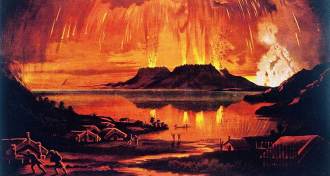 Earth
EarthMagma stored under volcanoes is mostly solid
Ancient zircon crystals provide clues about the magma that fuels volcanic eruptions.
-
 Climate
ClimateReaders question climate’s freshwater effects
Warming lakes, windmills for the Arctic, mosquito control and more in reader feedback.
-
 Climate
ClimateClimate change might help pests resist corn’s genetic weapon
Rising temperatures may allow pests to eat corn that is genetically modified to produce an insect-killing toxin.
By Susan Milius -
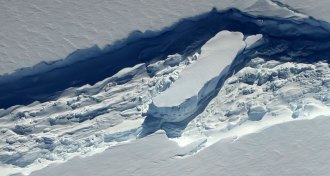 Earth
EarthAntarctica’s Larsen C ice shelf is within days of completely cracking
The crack in Antarctica’s Larsen C ice shelf grew another 17 kilometers between May 25 and May 31, 2017 and is at risk of breaking off a massive iceberg.
-
 Climate
ClimateU.S. will withdraw from climate pact, Trump announces
President Trump announced June 1 that the United States will withdraw from the Paris climate accord.
-
 Particle Physics
Particle PhysicsReaders puzzled by proton’s properties
Readers sent feedback on under-ice greenhouses in the Arctic, the Martian atmosphere and more.
-
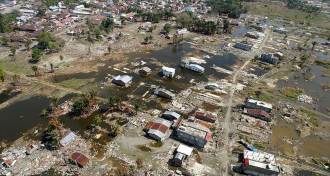 Earth
EarthDeep heat may have spawned one of the world’s deadliest tsunamis
The 2004 Indonesian quake was surprisingly strong because of dried-out, brittle minerals far below.
-
 Environment
EnvironmentWhen it’s hot, plants become a surprisingly large source of air pollution
During a heat wave, trees and shrubs can sharply raise ozone levels, a new study shows.
-
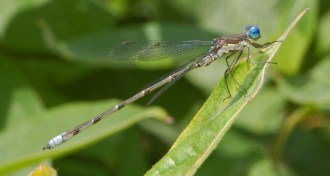 Climate
ClimateHigher temperatures could trigger an uptick in damselfly cannibalism
Experiments in the lab suggest that increases in temperature could indirectly lead to an increase in cannibalistic damselfly nymphs.
-
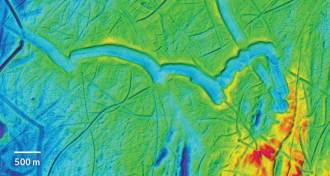 Earth
EarthStunning images reveal glacial landscapes under the oceans
The most detailed atlas of the seafloor ever compiled offers colorful imagery and ghostly glimpses of Earth’s glacial past.
By Beth Geiger